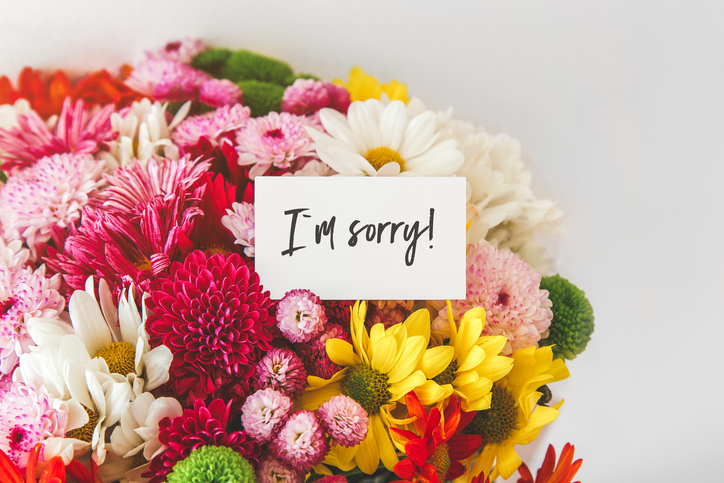How to Say “I’m Sorry” (And Actually Mean It)
You ever carry a regret so heavy it feels like a stone lodged in your chest? I have—moments when I’ve wounded someone with words sharper than I meant, or worse, with silence when I should’ve spoken. There was a time I let a friendship fray because I didn’t own my part in a misunderstanding; I told myself it’d sort itself out, but it didn’t—it just unraveled. The weight of that still lingers, a quiet ache that surfaces when I least expect it. Saying “I’m sorry” in those moments feels like trying to rebuild a bridge with a single plank—it’s a start, but it’s nowhere near enough unless you mean it down to your bones.
This isn’t kid stuff. Apologizing as an adult, especially when the stakes are high, is a soul-deep wrestle. It’s not just about patching things up; it’s about facing yourself—your flaws, your choices, your capacity to hurt—and choosing to do the hard work of repair. I’ve got degrees in psychology and theology hanging on my wall, but they didn’t come with a cheat sheet for this. I’ve learned it through trial and error—mostly error—because no textbook can teach you how to look someone in the eye and own your mess. But here’s what I know: a real apology isn’t a Band-Aid or a get-out-of-jail-free card. It’s a reckoning, a step toward healing, and a call our faith won’t let us ignore.
Why We’d Rather Run Than Repent
Let’s dig into this—why is saying sorry so brutal? Psychologically, it’s a threat to our ego. We’re wired to protect ourselves, to spin narratives where we’re the good guy, not the one who screwed up. I’ve caught myself mid-rationalization—blaming a rough week or a miscommunication—anything to dodge the mirror. That’s pride, and it’s a beast with teeth. Scripture cuts right to it: Proverbs 16:18 says, “Pride goes before destruction, a haughty spirit before a fall.” It’s not just a warning—it’s a promise. Pride sets us up to crash, and dodging an apology is like handing it the keys. Add the fear of rejection—what if they don’t forgive? What if I crack open my chest and they walk away anyway? No wonder we’d rather let it fester than face it.
I’ve lived this. There was a time I got angry at a family member—righteous anger, I told myself—and instead of hashing it out, I let it go. Not in a good way. Days turned into weeks, then months, then years, and the hurt just sat there, festering. What could’ve been settled in hours stretched into decades lost with someone I loved, all because I wouldn’t say a simple “I’m sorry.” Even if I felt I wasn’t completely to blame. I should have said “I’m sorry for my part in this.” Psychologically, that’s avoidance digging a trench; spiritually, it’s pride stealing what God meant for restoration. The cost? Way more than I ever bargained for.
God’s Blueprint for Making It Right
Scripture doesn’t mess around here. Matthew 5:23-24 hits hard: “If you are offering your gift at the altar and there remember that your brother or sister has something against you, leave your gift there… First go and be reconciled to them; then come and offer your gift.” That’s not a suggestion—it’s a priority. God’s saying your worship’s hollow if you’re harboring unresolved hurt. James 5:16 doubles down: “Therefore confess your sins to each other and pray for each other so that you may be healed.” Confession’s not optional; it’s the path to restoration—for them, for you, for your soul.
This isn’t just God speaking (although, that’s enough)—it’s psychology too. Unresolved guilt messes with your head—think of it as a tug-of-war inside your brain, where you know you’ve hurt someone but won’t admit it. That’s cognitive dissonance, a fancy term for when your actions don’t line up with who you think you are, and it irritates like a splinter you refuse to pull out. But who does that? Honestly? If you have a splinter in your finger, you do everything you can to get that sucker out. It hurts. It continues to irritate. If you leave it long enough it will get infected. It’s the same thing with an apology. You continue to hound your thoughts. It continues to irritate. If you leave it long enough the infection of bitterness will set in. Yet, we continue to refuse to pull it out.
Saying “I’m sorry” and meaning it stops the war—it’s not weakness, it’s courage. I’ve talked enough people through it: the ones who won’t apologize stay stuck, wrestling themselves into knots. God’s design is smarter than ours: owning our sin sets us free, not because it erases the past, but because it opens the door to grace.
How to Apologize with Your Whole Self (No Flimsy Fixes)
So how do you do this right? Not the cheap version—the real, gut-level kind? I’ve stumbled through this enough to figure out what works, usually after learning what doesn’t. Here’s the meat of it:
- Name the Break or Offense
“I’m sorry you’re upset” is a dodge—it shifts the blame. Call it out straight. “I’m sorry I broke your trust by not showing up when I said I would.” OR “I’m sorry I spoke to you that way, it wasn’t right, and I was wrong to do it.” Specificity matters—it’s not just words, it’s evidence you’ve sat with it. Psychologically, it signals accountability; spiritually, it’s confession. This matters to you and to the person you’ve hurt, more than you know (and sometimes more than the other person will admit). - Feel Their Pain (Not Just Yours)
Empathy is the bridge to letting them know that you really get how your choice landed. “I know that left you feeling dismissed, and that’s the last thing I wanted.” This isn’t about wallowing in guilt—God’s grace covers that—but about honoring their hurt. Studies show empathy rewires relationships; scripture says it’s love in action (1 Corinthians 13:4-7). Don’t overplay it, though—keep it about them, this is not your redemption arc. - Commit to the Shift
Words without change are noise. “Next time, I’ll keep my word—I don’t want to repeat this.” It’s not a vow of perfection; it’s a stake in the ground. Behavior change is the proof of repentance—psychology calls it integrity; theology calls it sanctification. I’ve had to back this up after promising to be more cognizant of the words that I use; it’s slow, but it’s real. And it keeps you accountable. - Let Go of the Outcome
Here’s where it gets raw: you can’t control their response. They might forgive fast, or they might need space—might even turn away. I’ve had an apology that met with the person rubbing my mistake in my face; it burned, but it wasn’t my burden to carry. Colossians 3:13 says, “Forgive as the Lord forgave you.” Get that? Jesus gave His life to forgive us. The least we can do is give our apologies to God first, then the person second. That way, it really doesn’t matter how they respond. Your job’s to offer it—clean, honest, no strings. Theirs is between them and God. That’s freedom, even if it’s messy.
It’s Worth the Hard Stuff
I’ve got enough years and plenty of mistakes behind me to know this isn’t easy. I’ve dodged apologies that should’ve been said, choked on pride when I knew better, and watched relationships fray because I waited too long. But every time I’ve faced it—really faced it—it’s been worth the ache. Not because it’s pretty, but because it’s true.
You don’t have to get this absolutely perfect—I sure don’t. Life’s shown me a good apology is like digging up hard ground: it takes muscle, but something good grows from it. God’s grace gives you the strength to start, and He’s faithful to finish what you can’t. So when you’ve got to say it, don’t flinch—own it, mean it, and trust Him with the rest. You’re not just patching things up; you’re building something stronger, one honest word at a time.
So, until next time, my friend, have…
☕ A little faith, a little courage, and a whole lot of stubborn joy. – Tonya
What’s the hardest “I’m sorry” you’ve ever had to say—or hear? Drop a comment—I’d love to hear your take!
© 2025 All posts written by Tonya E. Lee








